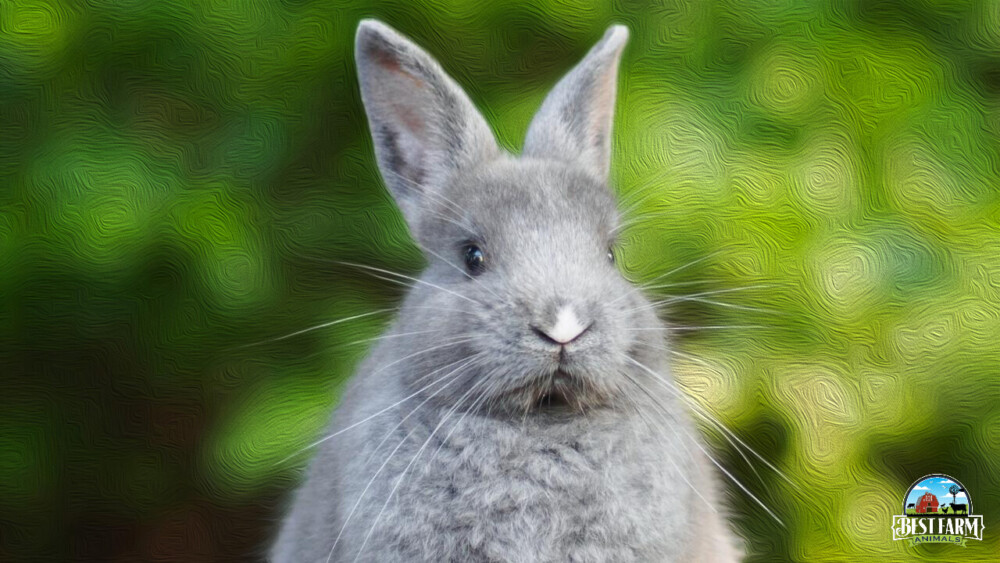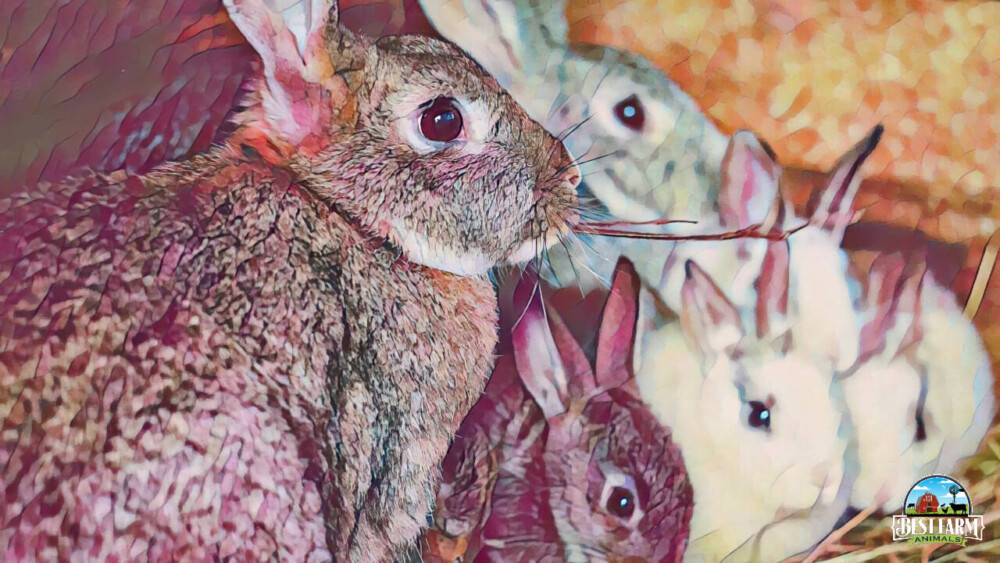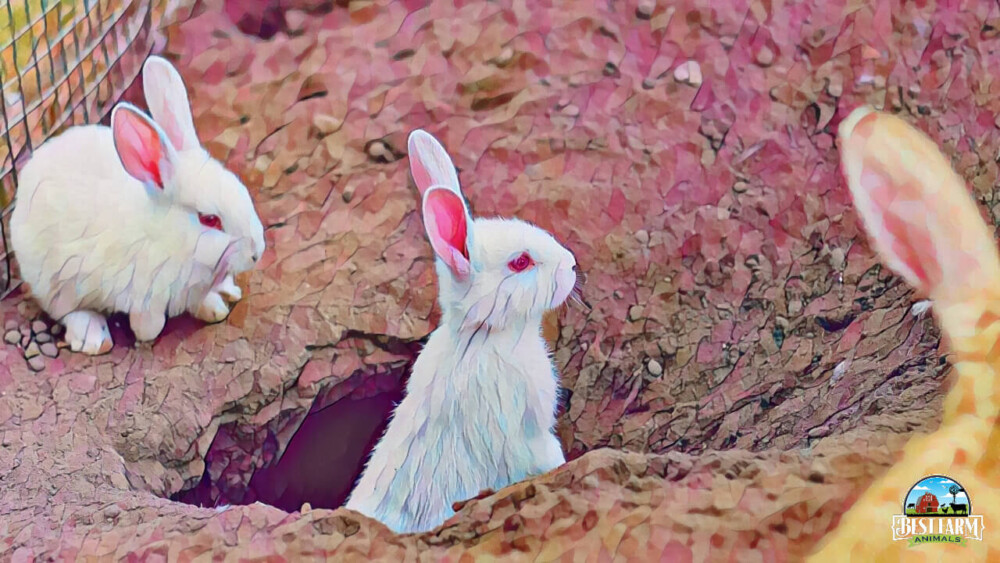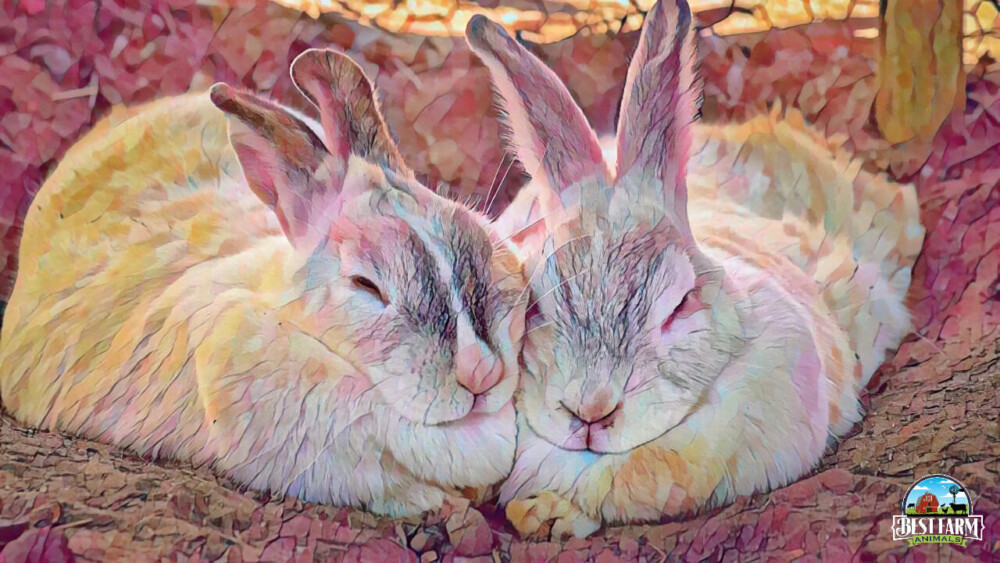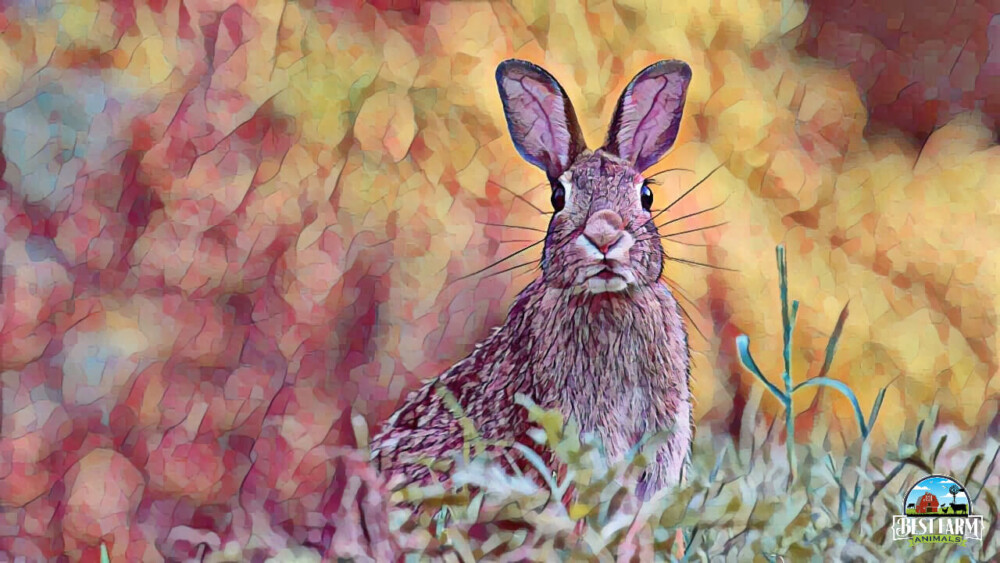If you’re an animal lover, then you probably know that rabbits are one of the most popular pets. But, if your rabbit gives birth and then eats her babies, it can be disturbing.
Why do rabbits eat their babies? Rabbits eat their babies because the doe is hungry, stressed, sick, or doesn’t have enough milk for the entire litter. Most instances of cannibalism are preventable. If your rabbit is eating her babies, there are a few signs you can watch for to determine why.
I’ll also cover the steps you should take to prevent it in the future. And more importantly, how can we prevent and stop it? Let’s explore this phenomenon and find out.
Reasons Rabbits Eat Their Young
Rabbits eat their babies for many reasons. If your rabbit is eating her babies, take care to eliminate the stressor causing this behavior. Below are a few reasons why rabbits may eat their young.
1. Hunger Can Cause a Rabbit to Eat Its Babies
Rabbits have a high metabolism and must eat a lot to survive. This means that they may resort to eating their babies to stay alive if there isn’t enough food available.
To help prevent your rabbit from eating her own kits, feed her alfalfa hay before they are born. Alfalfa is high in nutrients and rich in sugar, which will give your rabbit the boost it needs for a healthy birth and high milk production. This will allow time for proper growth and development because it provides essential nutrients that may otherwise be missed when breast milk isn’t enough.
How much food does my rabbit need to eat? Rabbits should have constant access to grass hay and clean water. During pregnancy and when nursing, female rabbits need alfalfa to support their additional needs. Rabbits need to munch all day. They should also have access to a mineral bar so they can get additional nutrients as needed.
2. Stressed Rabbits Are More Likely to Eat Kits
Rabbits are very sensitive animals, and they can easily get stressed out. A stressed rabbit may eat its babies to cope with the stress.
Rabbits can be stressed out because of changes in their environment. These changes can include events such as a new person or animal in the house, being moved, having predators nearby, or not having enough resources such as hay for a nest or food. Rabbits can also stress if they’re getting inadequate exercise or if they’re not being socialized enough.
It’s vital to keep your rabbit calm, happy, and safe before, during, and after pregnancy. If she feels stressed or anxious, there’s a higher chance that she will eat her young, which could harm both herself and the baby. Ensure you provide them with plenty of space so they can move around freely without feeling intimidated in any way.
Help your stressed rabbit calm down by providing a dark, safe place where it can hide. Reduce noise levels and keep all potential predators away, including dogs and children, which frighten rabbits. Avoid relocating your rabbit and wait to introduce new people or animals to it until after it has adjusted to caring for the kits.
3. Sick Rabbits May Eat Their Young
Sometimes, rabbits may eat their babies if they are sick or have an infection. This is usually because they don’t have the energy to care for their babies and need to focus on getting better. If you think your rabbit is sick, it’s imperative to take them to the vet as soon as possible.
Don’t allow your rabbit to get pregnant while ill or undernourished. If your rabbit is struggling in health, keep her away from male rabbits. Make sure she has the nutrients she needs and that external stressors are reduced. Consult with your vet so you can get her better before she impregnants.
If your already pregnant doe gets ill, make sure you work with a vet to give her the best chance to get better and recover before she gives birth.
4. A Doe Without Enough Milk May Eat the Runts
Some does won’t have enough milk for the entire litter. This can happen if the mamma rabbit is too young, has too large of a litter, or is undernourished.
When a rabbit gives birth to a large litter, the mother rabbit may not have enough milk to feed all. This can result in some of the babies starving to death. The mother rabbit may eat the weaker babies to prevent this from happening.
This is also why it’s important to make sure that your rabbit has enough food and water available after they give birth. Ask your vet for advice if you’re unsure how much to feed them.
How to Prevent and Stop Rabbit Mothers from Eating their Babies
Fortunately, you can take steps to reduce or eliminate the instances of your rabbit eating her babies.
Stop your rabbit from eating its babies by ensuring she has enough food and water, a safe place to hide, isn’t too young when she gives birth and is healthy before and during her pregnancy.
- Provide alfalfa to pregnant and nursing rabbits
- Provide constant access to clean water and food
- Give your rabbit hiding spaces
Do Male Rabbits Kill Babies?
Male rabbits are not known to kill babies, but they can sometimes act aggressively towards them. This is usually because the male rabbit feels threatened by the presence of the babies.
If you have a male and female rabbit living together, keeping an eye on them after the female gives birth is important. If you see the male rabbit acting aggressively towards the babies, separating them is best.
Will a Rabbit Kill a Baby If You Touch It?
A rabbit will not kill a baby if you touch it. However, rabbits can sometimes be aggressive and may bite if they feel threatened. Baby rabbits are particularly vulnerable and should only be handled by experienced caretakers.
If you must handle a baby rabbit, do so gently and with respect for the animal’s space. Remember, even though they’re small, rabbits are still wild animals and should be treated as such. Also, if you’re concerned that your rabbit might hurt a baby, it’s best to keep them separated.
Do Rabbit Mothers Mourn Babies?
Rabbit mothers have a strong bond with their young, and they will often grieve the loss of a baby. Rabbit mothers will usually build a nest for their babies, and they will carefully groom them and nurse them until they are old enough to fend for themselves.
If a baby rabbit dies, the mother will often pull the body into the nest and surround it with soft fur. She may also refuse to leave the nest or eat. In some cases, a grieving rabbit mother may even die.
While the death of a young rabbit is tragic, it is key to remember that rabbit mothers are incredibly resilient creatures. They have survived in the wild for centuries and will continue to thrive despite the occasional losses they may suffer.
Conclusion
Rabbits are complex creatures and can sometimes do things that seem strange to us. However, it’s important to remember that they are still wild animals. In case you want to keep rabbits as pets, it’s essential to do your research and understand their needs.
By providing them with plenty of hiding places, socializing them, and giving them enough water and food, you can help prevent them from eating their young. However, if a baby rabbit dies, the mother will usually mourn its loss. While this behavior may seem disturbing to us, it’s actually a normal part of life for rabbits.
Recommended Rabbit Supplies
This list contains affiliate products. Affiliate products do not cost more but helps to support BestFarmAnimals and our goal to provide farm animal owners with accurate and helpful information.
Housing: If your rabbit is indoor, you’ll need a cage, a hideout (to keep your rabbit from death by heart attack), and a space for it to get exercise and spend time with you. If you don’t want to let it run free in your house, this animal playpen provides space and keeps your rabbit from hiding under your couch.
If you keep your rabbit outdoors, an outdoor hutch that provides space and protection from predators is needed. (I’d still keep mine in a barn for further protection from the elements.)
You’ll also need bedding, toys, a grooming brush, and treats for your little friend. A litter box is important because rabbits can be potty trained. Timothy hay is the best kind of hay for rabbits as alfalfa is too sweet. Don’t forget a water drinker. I like the half-gallon waterer because it can cover two rabbits for several days. Pair it with a food bowl or a food manger (a little cleaner) and you’ll be set up!
If you want to treat your bunny to entertainment, a cat tower, a treat ball, or bunny toys all work wonderfully.
Finally, if you plan on taking your rabbit with you on trips, you’ll need a carrier. Here’s a small carrier or larger carrier that work great for occasional travel. If you travel a lot, you might want the carrier that’s rated #1 in safety for safe travels
Lastly, I use this odor eliminator for accidents and to wipe out the bottom of the cage and litter box when I clean it.

